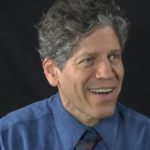Young voters could well determine the 2016 election. But will they show up? Only 20 percent of eligible 18 to 29-year-olds voted in 2014, the lowest turnout in 40 years. This generation cares far more about environmental issues than their older peers. Even those who didn’t grow up on The Lorax know that climate change is real. They know it’s a priority. And they’re the ones who are going to have to live with it. But there’s a serious risk they may stay home come November.
Yet if engaged sufficiently by their peers, and by institutions they’re a part of, many will participate. The candidates themselves may have a hard time getting them to the polls. But they’ll trust peers giving an honest sense of the issues and stakes. The resulting conversations can go a long way toward overcoming political cynicism.
The national nonpartisan Campus Election Engagement Project fosters these kinds of dialogues, helping America’s colleges and universities use their resources and networks to engage America’s 20 million students in elections. We help schools get their students to register, volunteer in campaigns, educate themselves on candidates and issues, and turn out at the polls. By coaching schools through creative and effective approaches drawn from campuses nationwide, we help administrators, faculty and student leaders collaborate to make electoral engagement a visible campus priority.
In 2014, the Campus Election Engagement Project worked with 280 colleges and universities in 21 states, with an enrollment of 3.2 million students. Based on precinct comparisons with 2010, when we weren’t running the project, we increased student turnout 16 percent at participating campuses that we could measure, compared to a 17 percent national youth vote decline.
Reaching out through academic networks that the schools already trust, we help campus stakeholders bridge entrenched academic silos to systematically foster student electoral participation, through approaches like:
* Registering voters at first-year orientation and when registering for classes
* Helping students navigate daunting new voter laws
* Having administrators send out all-campus emails and social media reminders on key election dates
* Having campus football teams hold up their registration cards at half-time while the Jumbotron displays a registration link
* Holding parades to the polls
When students are asked how many missed voting in a major election, most raise their hands. They cite exactly the kinds of structural and informational barriers we help the schools address: not knowing that they could register on campus, living too far away, missing registration deadlines or being confused by ID laws.
Others voice perceptual barriers, saying they didn’t participate because “my vote doesn’t matter,” “they’re all the same,” “the whole system’s corrupt.” We address these barriers by creating non-partisan guides to candidate stands, which schools distribute through campus newspapers, campus mail and email, and display in high-traffic areas. These guides let students see “what the candidates actually stand for.”
Along with the administrators, faculty, and staff who play a critical role in our project, our Election Engagement Fellows program engages student leaders to whom we give training, supervision, and $1,000 stipends. These Fellows create a climate where voter participation becomes a norm, distributing our materials, organizing debate watch parties, issue forums, and conversations in dorms, student unions, and classrooms, running near-professional Get Out the Vote drives.
Students want to be idealistic, but often avoid elections as a swamp of corruption. Yet they’ll listen to trusted peers. Whichever candidates students support, we help them convince each other that electoral participation is worth it, and that if they want change, voting is a necessary part. And if they do participate, their votes can help create the sustainable world that all of us seek.




Here is an open letter from the millenial leaders of carbon wa, a grassroots campaign behind initiative 732, which could be the first state carbon tax in the nation
https://yeson732.org/open-letter-from-millennials/
Hi Paul, I saw one of your lectures at the University of Redlands in California 3 years ago. Climate Change is an issue that young people care about more than any other demographic so I’ve been using that as a rallying cry for voter turn out and civic engagement through the work I do talking to students. In Washington State, millennials were the most ardent supporters, organizers, and advocates for the strongest climate policy in North America: I-732, the first carbon tax in the nation. Here is their open letter the leaders of the environmental establishment:
https://yeson732.org/open-letter-from-millennials/
Millennials are leading the way in the fight against climate change here in Washington. We have seen politicians on both sides of the aisle dragging their feet and playing the same old partisan games with our future. That’s why we strongly support Initiative 732, it’s bold, but also pragmatic. We’re turning our idealism into political action.
Millenials are going to be the ones to make or break the politics of the coming years, but only if we actively do so.
It’s so great to see and hear all of young people’s self determination around really caring for our environment~~they are activated to take charge and are going to steer our states and nation in some pretty powerful and positive directions!
I’m confident that millennial voters like me will turn out, especially with the I-732 carbon tax initiative on the ballot. From a young age, I was taught about the harmful effects of climate change, and I know a lot of folks who want to do something, but lack direction. I-732 is our chance to take action now!
Yes on I-732! Save the world!